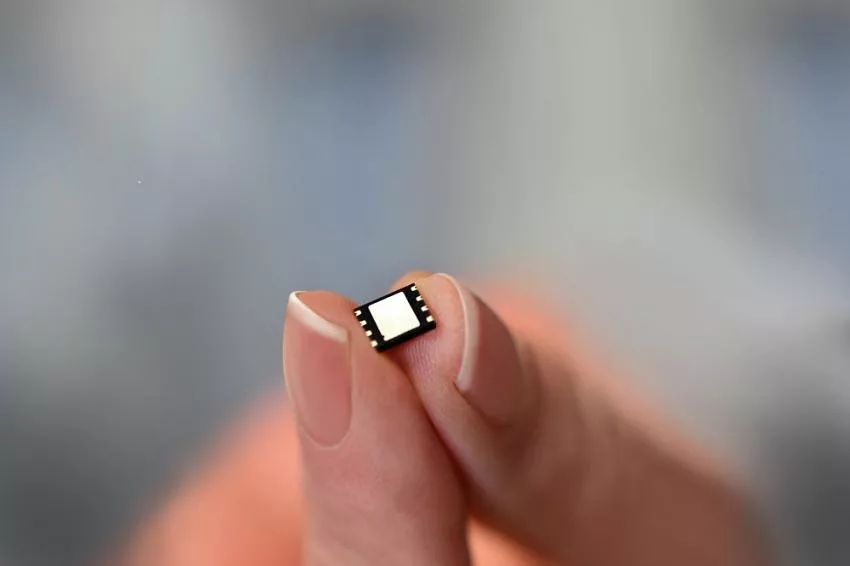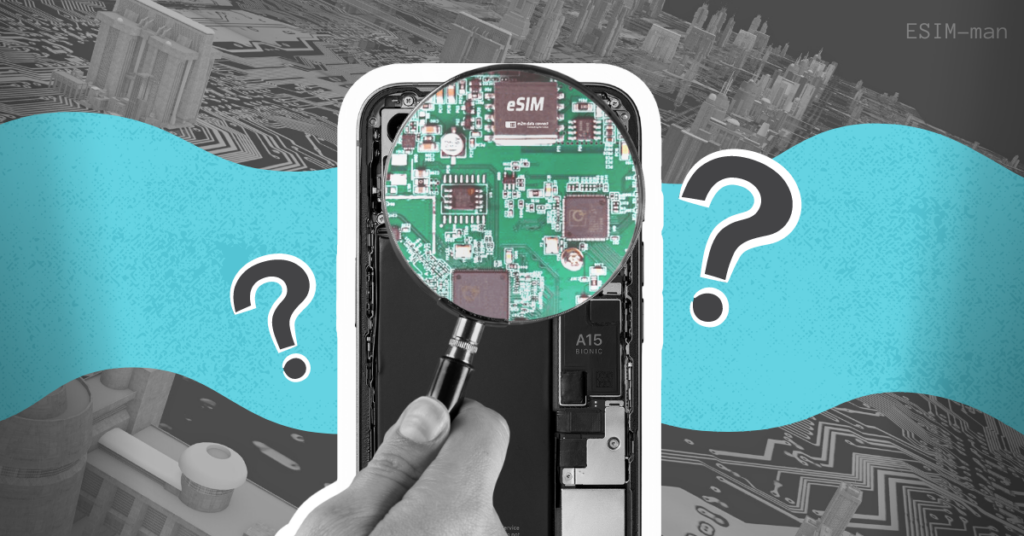Table of Contents
Did you know that your phone with a production date in the last 5-6 years has an Embedded SIM feature? Don’t believe it? Then go to the settings section of your device, go to the cellular tab and look carefully, after the main items in the top block just below you will see the option to add eSIM. Now you’re sure that such modern technology is supported on your smartphone. But what is an eSIM? And why should you use this function?
Related: “Why eSIM is Cheaper Than Physical SIM?“
The transition from physical SIM cards to electronic SIM represents a shift towards a more integrated and connected future. This technology simplifies device activation and switching between network providers while enabling smaller, sleeker designs. It offers enhanced convenience, versatility, and connectivity options for users across various devices.

Evolution is inevitable: from Mini SIM to eSIM
Meanwhile, let’s go back to history and consider the process of evolution:
- The first stage in the evolution is the mini format version, also known as the “2FF” or second generation form factor. The card emerged in the nineties and has become a true standard in cellular telephony as it still exists today. Its dimensions are standardised at 2.5 cm x 1.5 cm;
- Developers began working to reduce the SIM card format, as they needed to increase the usable space in devices, so they soon launched the “3FF” or third generation form factor, which made room for new technology, as it was about 1.5 cm by 1.2 cm;
- The nano SIM, also known as the “4FF” (fourth form factor), represents a significant reduction in size compared to its predecessors. Measuring just 12.3mm x 8.8mm, it is approximately 40% smaller than the micro SIM and about 60% smaller than the mini SIM. Its diminutive size allows for even slimmer and more compact device designs;
- The Nano version, measuring 1.2 cm by 0.9 cm, is considered the next evolutionary step. It’s also thinner, which has made it easier for smartphone and smart accessory developers, as the card takes up less and less space. Its middle name is “4FF” or fourth generation form factor;
- And finally, 7 years ago, a new embedded card technology was released on the smartwatch, which has been evolving steadily in the market for modern technology. One of the key pros of eSIM means its ability to be remotely activated. You will be able to buy a telephone number from anywhere in the world.
Term and main advantages of eSIM
The eSIM is a virtual card characterised by an embedded chip in the device and remote management of number and tariff connections from cellular operators.
Main advantages of e-SIM:
- With this stuff, users can shift between different carriers without physically use SIM. This is handy for business and world travel, as you can connect for local rates from home;
- MFF2 works with multiple SIM profiles on a single smartphone. This means users can have separate profiles for personal and work-related use or maintain different profiles for different regions or countries. The card provides you to add about 10 phone numbers. Switching between profiles can be done effortlessly, empowering users to manage their connectivity options more efficiently;
- What is about eSIM Space Efficiency? Since 2016, smartphones have moved a long way ahead in terms of internal ‘brains’, as the space taken up by, for example, a Mini SIM card measuring 2.5 cm x 1.5 cm has been freed up;
- Cellular operators often offer great deals and offers on Embedded SIM. You can find cheap individual plans as well as family or group plans. On the websites of mobile operators you can see current discounts;
- Enhanced Security. This technology incorporates advanced security features, such as tamper resistance and secure authentication protocols. This helps protect against SIM card cloning or unauthorized access to network services. The embedded nature of this stuff also reduces the risk of physical card theft or damage;
- Integration with Various Devices. eSIM can be integrated into a wide range of devices beyond smartphones, including iPhones with iOS, Android gadgets, tablets and even vehicles. It is safe to say that virtually every smartphone of today’s generation has an e-SIM chip inside.
Tip of the day: Switch to eSIM and your business will be successful
Advices, why you should convert to eSIM:
- Switching to MFF2 allows you to be on track as all future devices will support the new format, leaving physical media behind;
- If you’re a frequent traveler, electronic SIM can be extremely convenient. Evaluate the international roaming options provided by various network operators and choose ones that offer competitive rates and reliable coverage in your most visited destinations. This way, you can easily switch to a local network when traveling abroad without the need for physical SIM cards;
- Familiarise yourself with the security features and privacy policy associated with eSIM technology. This stuff provides enhanced security, so you don’t have to worry about potential risks and keeping your data and privacy safe.
Summary
The take-home message of eSIM overview is eSIM brings versatility, convenience and benefit, as many carriers offer great deals on Embedded SIM prices. This new technology is developing rapidly and matches the fast pace of modern life.






